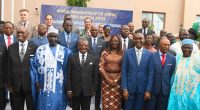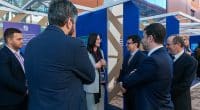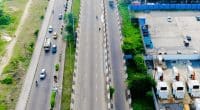At a time when Africa is embracing information and communication technologies (ICTs), there are still questions about the energy-intensive aspect of the equipment, their impact on the environment, not to mention the difficulties of access to electricity in Africa. It is therefore necessary to rethink ICTs with regard to the energy challenges of the African continent. In this forum, Sean Xiao, Director of the Huawei Strategy for North Africa insists on the need to adopt equipment that is conducive to energy efficiency and especially to supply its devices with electricity produced from renewable energy sources.
Existing Trends
In the Era of global pandemic, seamless connectivity and ICT technologies are playing a vital role to ensure normal life. But with new ICT Rollout it demands high energy consumption, and Telecom operators already account for 2 % of total global energy demands. Additionally, with more energy consumption there is more carbon emission which is greatly impacting the global climate change.
Telecom operators globally are ensuring effective measures to tackle the climate change and more and more operator are committing to net zero carbon emission. The decision of energy transformation we make today will shape the future of humanity for the next coming decade.
African Continent Insight and Challenges
ICT deployment and carbon footprint is more demanding in Africa with 1.2 billion population,
31% of the population is unconnected and 51% of the population lack reliable power supply, and hence many telecom sites still rely on diesel generator as the main power source. Moreover, the high oil prices make the ICT evolution costly and with traditional energy solutions there is more carbon footprint and this is not a good sign for the healthy climate situation in Africa.
To ensure the safe environment for the coming generation
Huawei believes we can fully utilize the rich resources of renewable energy sources in Africa, such as solar power with ambulant natural sunlight. Solar for all is a close reality in Africa to ensure “0 “DG and “0 “carbon footprint.
In the Northern Africa, there are about 120,000 physical sites. We have helped operators deploy hybrid power solutions at about 20,000 sites, our advanced hybrid solution ensures more efficient and reliable green energy to eliminate the digital divide and reduce impacting the environment. For example, in Ethiopia, more than 400 solar hybrid sites have been built, generating 10,480 MWh of power and reducing 2850 tons of carbon emissions every year.
Ideas and Suggestion from Huawei
In the following section I would like to brief some ideas and suggestions which will shape the future of digital power in Africa
With our commitment for social responsibility to build a better world and tackle the climate change problems in quick time, Huawei will continuously innovate power solution with high integration and AI capabilities to build the greener world.
- Efficient devices : High integration and Highly efficient products and patent technologies to ensure 98% power efficiency ,smart Cooling system.
- Simple site: All intelligent energy saving site (Indoor to outdoor and outdoor to blade) with intelligent mix approach of solar + lithium battery and All solar approach to reduce the carbon footprint significantly.
- Intelligent Network: Cloud based AI and Intelligent O&M. CloudLi battery deployable on the network level maximizing the gain for the operators. All intelligent power and O&M ensure Improved O&M efficiency and theft proof energy worry free rollout for the operators.
For data centre we want to ensure “0” wait for rollout and “0” energy waste. Prefabricated and modular data centre ensures quick time to market and with cutting edge cooling technology we can optimize the energy saving significantly .Furthermore We also want to ensure that the site and Data canter is more visible with efficient O&M and in the future, the site and data centre can be managed unattended by intelligent O&M and AI approach.
Win-Win Collaboration with Government and Regulators
Digital power transformation will benefit the humanity by playing an extremely critical role in environmental protection it will help to build a fully connected greener Africa and hence we want to invite regulators, government authorities and operators to share this journey together with us in delivering the promise of a greener Africa.
Some African countries have begun to implement these measures. Senegalese Ministry of Petroleum and Energy and Ministry of Finance and Budget have introduced an 18% VAT exemption for 22 kinds of solar, wind, and biogas energy products. This is part of the broader campaign that the government is currently running to achieve universal electricity access by 2025, reduce greenhouse gas emissions, and promote renewable energy
To maximize the use of solar energy, it is essential to have a rapid development of highly efficient energy storage technologies. Lithium batteries are the most promising energy storage solution in the future. The rise of electric vehicles lowers the costs of lithium batteries. PV power and lithium batteries make 24-hour power supply possible.
The green ICT transformation needs the cooperation of industry participants. The governments need to provide more policy support and work together with environmental organizations to accelerate the transformation.
By Sean Xiao,
Chief Strategy Officer of Huawei Northern Africa Region






